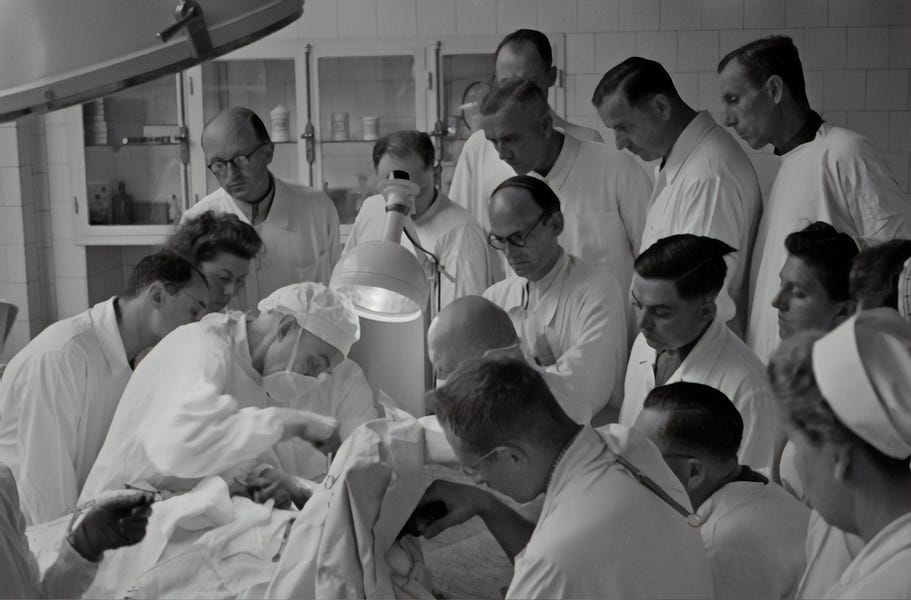Introduction
In the realm of decision-making, mental models serve as cognitive frameworks that shape our understanding of the world and guide our choices. One such mental model, the Cancer Surgery Formula, has gained prominence due to its relevance in various contexts. This formula refers to a biased decision-making pattern where individuals or groups prioritize immediate action, regardless of its efficacy, when faced with a complex problem or challenge. This blog post will delve into the intricacies of the Cancer Surgery Formula, highlighting its psychological underpinnings, prevalence in daily life, and the potential pitfalls it entails. Furthermore, we will explore strategies for identifying and mitigating the influence of this mental bias, promoting more rational and objective decision-making.
Defining the Cancer Surgery Formula
The Cancer Surgery Formula can be succinctly defined as a decision-making pattern that favors immediate action over careful consideration when dealing with complex problems or challenges. This model draws an analogy from the urgency surrounding cancer surgery, where timely intervention is crucial. However, unlike in medical situations, the application of this mental model to decision-making often leads to irrational and counterproductive outcomes.
Relevance in Decision-Making Processes
The Cancer Surgery Formula holds significant relevance in decision-making processes, as it manifests in various aspects of our lives. When confronted with complex problems, our innate desire for quick fixes and immediate gratification often leads us astray. This mental model thrives on our cognitive biases, which are deeply rooted in human psychology.
Examples of the Cancer Surgery Formula
- Personal Life Decisions: Consider a situation where an individual is unhappy with their job. Rather than carefully evaluating their skills, interests, and long-term career prospects, they hastily quit their job without a well-thought-out plan. This impulsive decision, driven by the Cancer Surgery Formula, may provide momentary relief but can have detrimental consequences in the long run.
- Business Scenarios: In the realm of entrepreneurship, the Cancer Surgery Formula can be observed when business owners attempt to tackle declining sales by implementing superficial, short-term measures instead of conducting a thorough analysis of their business model. For instance, offering deep discounts or introducing new products without understanding the underlying issues can exacerbate the problem and undermine the company’s sustainability.
- Public Policy-Making: The Cancer Surgery Formula is not limited to personal and business decisions but can also affect public policy-making. When policymakers are under pressure to address pressing issues, such as crime rates, they may resort to knee-jerk reactions like implementing stringent laws without considering the underlying socio-economic factors. Such approaches often fail to address the root causes and may lead to unintended consequences, perpetuating a cycle of ineffective policy responses.
Mental Biases and Psychological Underpinnings
Several cognitive biases contribute to the manifestation of the Cancer Surgery Formula. The confirmation bias, for example, influences individuals to seek information that supports their preconceived notions of a solution, disregarding contradictory evidence. This tendency reinforces the urgency for immediate action, leading to a hasty decision. Furthermore, the availability heuristic plays a role by causing individuals to rely on readily available, but limited, information when making decisions, neglecting more comprehensive analysis.
Additionally, the illusion of control, a cognitive bias rooted in our need to feel in control of outcomes, can intensify the Cancer Surgery Formula. This bias may lead individuals to believe that they have more control over complex situations than they actually do, making them more prone to favoring quick action over thoughtful consideration.
Strategies for Avoiding the Cancer Surgery Formula
To counteract the influence of the Cancer Surgery Formula and promote more objective decision-making, individuals can adopt the following strategies:
- Recognize cognitive biases: Familiarize yourself with common cognitive biases that contribute to irrational decision-making. Understanding these biases will help you identify when they may be clouding your judgment and pushing you towards the Cancer Surgery Formula.
- Embrace a reflective approach: Take a step back and engage in thoughtful reflection before making a decision. Avoid the temptation to rush into action by creating space for careful analysis, seeking alternative perspectives, and considering potential long-term consequences.
- Engage in comprehensive research: Gather as much relevant information as possible, ensuring a balanced and comprehensive understanding of the problem or challenge at hand. By conducting thorough research, you can make more informed decisions and avoid falling prey to the allure of immediate action.
- Seek diverse perspectives: Actively seek out differing viewpoints and opinions from individuals with diverse backgrounds and expertise. Engaging in constructive debates and considering multiple perspectives can illuminate blind spots and enhance the quality of your decision-making.
Conclusion
The Cancer Surgery Formula, a mental model rooted in our innate desire for quick fixes, often leads to irrational and counterproductive decision-making. By understanding its psychological underpinnings, recognizing its prevalence in various contexts, and implementing strategies to counteract its influence, individuals can make more informed and rational choices. Awareness and active avoidance of this mental trap are crucial for navigating the complex challenges we encounter in personal, professional, and societal domains. By embracing a reflective and comprehensive approach, we can minimize the detrimental effects of the Cancer Surgery Formula and chart a course towards more effective decision-making.
